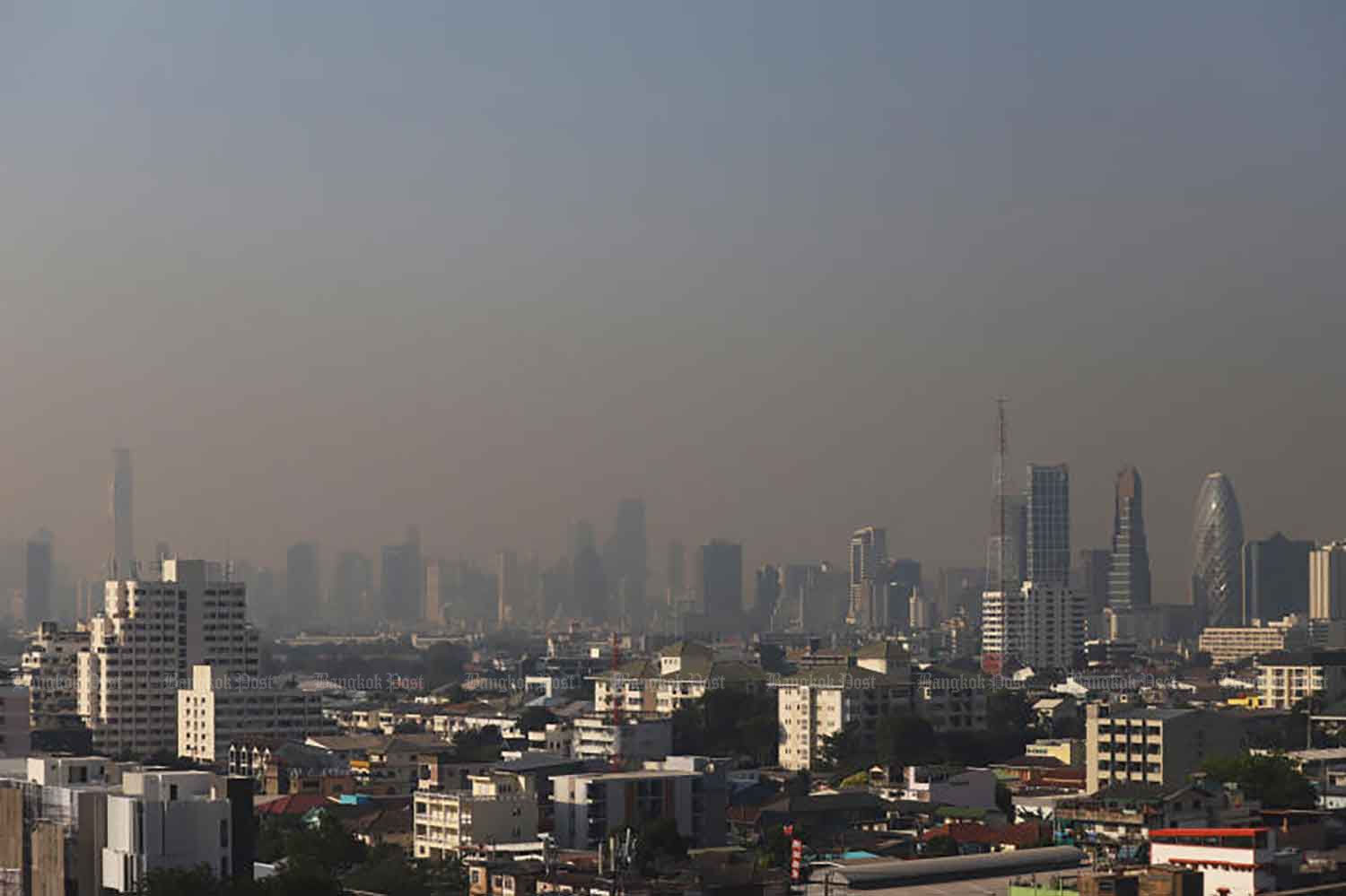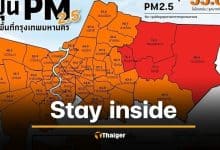Bangkok battles severe air quality dip prompting remote work

Bangkok’s air quality dipped severely yesterday, February 14, with an escalating level of fine particulate matter, PM2.5, recorded in most districts. This hazardous air quality led the Bangkok Metropolitan Administration (BMA) to urge both state agencies and private entities to facilitate remote working for their personnel today and tomorrow.
According to an official statement issued by Bangkok Governor Chadchart Sittipunt, 151 public and private organisations employing approximately 60,279 people were encouraged to adopt work-from-home measures for the said duration. However, the BMA clarified that schools under its jurisdiction would continue operations as planned, owing to the establishment of safe zones to shield students and staff from undue exposure to PM2.5.
AirBKK, the designated air quality information centre under the BMA, reported alarming PM2.5 levels exceeding 75 microgrammes per cubic metre (µg/m³) in 20 districts by 11am yesterday. These figures significantly breach the safe threshold of 37.5 µg/m³, warranting immediate action.
The affected districts include Klong Sam Wa, Thawi Watthana, Thon Buri, Bangkok Noi, Bang Khen, Bang Bon, Bang Phlat, Bung Kum, Prawet, Lat Krabang, Nong Khaem, Nong Chok, Kannayao, Taling Chan, Bang Na, Pathumwan, Pomprap Sattruphai, Min Buri, Yannawa, and Laksi, reported Bangkok Post.
In light of the escalating PM2.5 pollution, Bangkok residents are advised to stay updated on air pollution levels via AirBKK’s Line Alert.
The Pollution Control Department (PCD) projected the PM2.5 pollution situation in Bangkok and surrounding provinces to worsen until Saturday. Additionally, the Meteorological Department of Thailand indicated that air stagnation, a major contributor to PM2.5 pollution, started yesterday, February 14, and is expected to persist today.
The PCD also reported detecting as many as 3,241 fire hot spots between last Saturday and Tuesday in the Central and Northeast regions, and 14,939 in neighbouring Cambodia.
A collective air quality assessment provided by teams from several organisations, including the Geo-Informatics and Space Technology Development Agency, identified 39 Thai provinces yesterday as PM2.5 pollution red zones. Additionally, of the 50 districts in Bangkok, 40 recorded extremely high PM2.5 levels, thereby posing a serious health threat to residents.
Latest Thailand News
Follow The Thaiger on Google News:


























